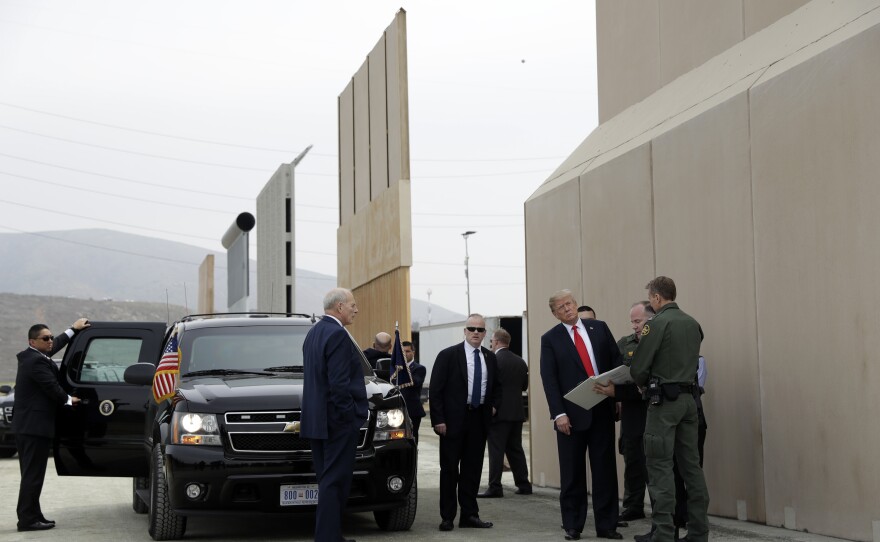A spokesman for U.S. Customs and Border Protection told KPBS that border wall prototypes and mock-ups didn't need to be physically tested for resistance to tunneling because that capacity was apparent in their designs.
Earlier this week, KPBS published a government report showing that the barriers had not been tested for how well they resisted the digging of tunnels beneath them.
RELATED: Government Report Shows Border Wall Designs Can Be Broken
"All prototype designs met or exceeded anti-dig requirements specified in the Requests for Proposal," said spokesman Ralph DeSio. "It was not necessary to actually dig under them."
In October through December, the barriers were tested for resistance to breaching, scaling and more by military special forces, the Border Patrol Tactical Unit and other groups. All eight were deemed vulnerable to a certain breaching technique, according to the documents.
RELATED: US-Mexico Drug Tunnels Evolving Amid Increased Border Security
The prototypes were supposed to prevent digging or tunneling for a minimum of 6 feet below the lowest adjacent grade, according to government specifications for construction.
In a previous investigative series, KPBS and inewsource found border fence construction is correlated with the creation of illegal cross-border tunnels, used for drug and human smuggling. These tunnels tend to concentrate in areas with strong and layered fencing.
RELATED: America's Wall: Decades-Long Struggle To Secure US-Mexico Border
In San Diego, which has one of the most fortified borders with Mexico, more than 60 tunnels have been found since fencing construction began. One was 90 feet underground.







